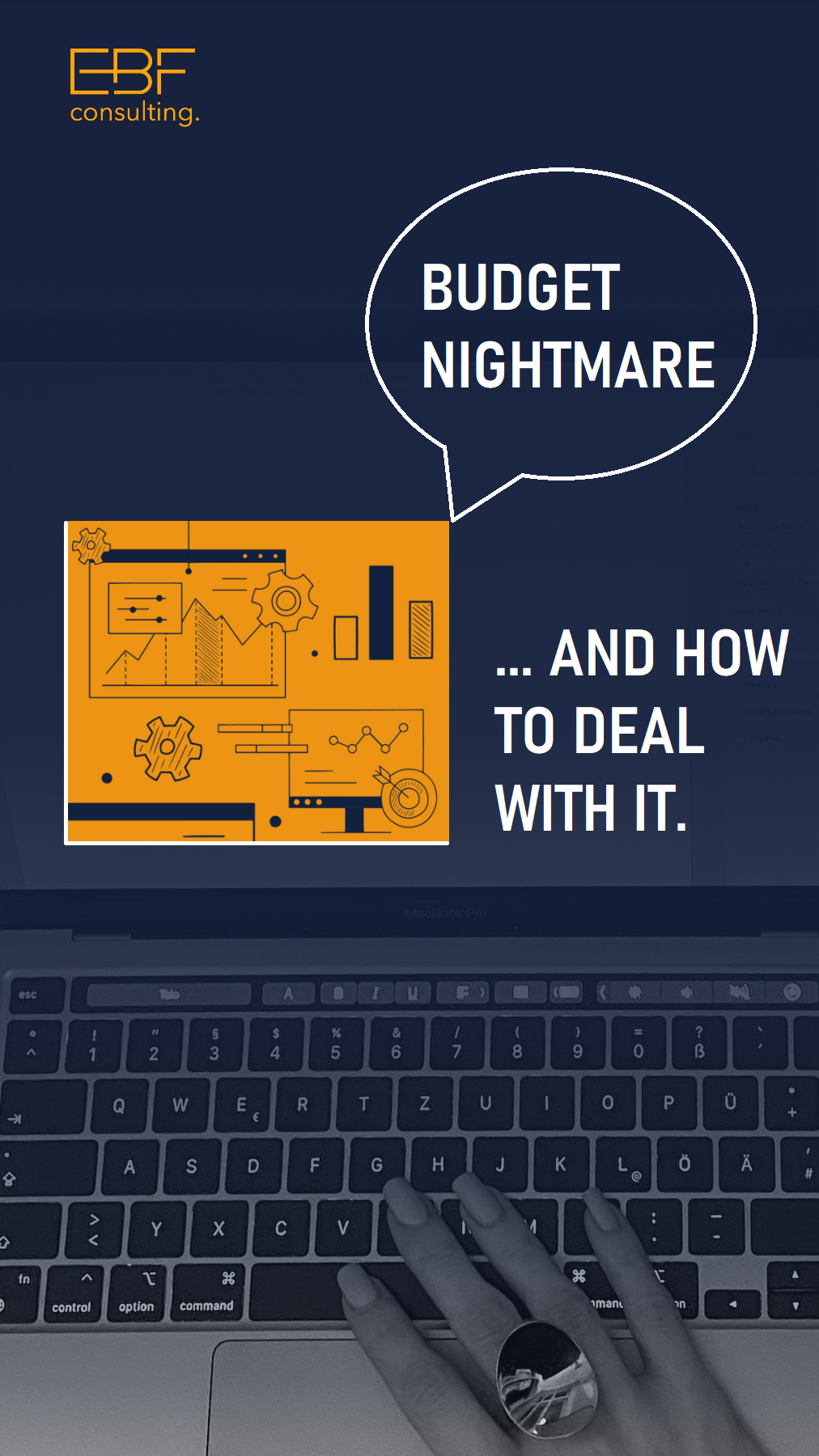
You may have found yourself in that situation. As usual, you do your job when all of a sudden you are asked to contribute information to the organization’s annual budget. Or, on the contrary, you might want to start a project and need to calculate its costs and added value for the management. But where to start?
Remember, to be successful, a budget must be well-planned, flexible, realistic, and clearly communicated.
First step: Get the information.
Finding out how crucial the data you produce is, is a good place to start. How important the budget is to the business, what effect it will have on your team or department, and how it will affect your project and performance evaluation. Is this a cost estimate that is going to be a part of some larger whole which will be subsequently revised? Or, for example, are you writing an application for a subsidy, where each item must be classified in the correct category, evaluated accurately, and, if adjustments are required, will have to go through a change request? These are the questions you need to ask yourself to know how much the budget can be based on your expert estimate and which level of precision is needed. The more information you get in the beginning, the more competent you will be during preparation.
Although you can surely use previous budgets as a guide, “zero-based budgeting” is the best strategy. Starting with no money in your budget, you create a case for the money you want to spend and, if your budget includes revenue projections, the money you think will be coming in. This practice will ensure that you really understand the amounts you’re asking for and therefore you will be in a better position when negotiating. Familiarize yourself with the company‘s plans&vision for the period for which you are creating a budget. Don’t forget to ask your people what they would like or need, though. To be helpful, the budget should accurately represent what is anticipated to happen.
Second step: Calculate.
After getting all the necessary information, sit down and start to plan. Keep the following tips in mind to get better and more accurate results:
1) Assume the lowest possible income and the highest possible expense. Typically, you hope for the best and plan for the worst.
2) When estimating labour costs, it is preferable to look at recent market data (even if it means just browsing job offers on advertising portals), as you might not be able to find someone for the calculated salary otherwise. But don’t forget to compare your requirements with your organization’s compensation policy. In general, it’s always best to use real figures when possible.
3) Itemise your expenses. From my experience, professional software licenses are frequently forgotten. Everyone remembers the hardware, however when you are hiring a professional, he, she or they will need more tools to work effectively than just a laptop. Consider also small periodical items like subscriptions.
4) Don’t forget to also include expenses for professional development and education. Yes, larger organizations typically have money allocated for general learning. However, it is wise to plan ahead if you know, for instance, that you want to attend a conference for €10,000. To reduce the chance that the item will be cut from the budget, demonstrate how these expenses will improve the productivity and performance of your team.
5) In reference to the latest economic situation, I can’t help but mention the inflation and potential exchange rate differences. They can make a significant difference in the costs. Discuss whether and how to include the impact in the prepared budget with members of your organization’s finance team.
6) And a little advice at the end: If you prepare company budget, Christmas presents for business partners are a very neglected expense that can blast a hole in your plan.
Also, be aware of the difference between fixed and variable costs. Businesses use variable costs for costs that change frequently, e.g., operational expenses, while fixed costs are used for costs that are constant for a set period of time, like rent or loan payments. Fixed costs are usually calculated for the organization as a whole, and only their share is projected into the sub-budget. So don’t be surprised if someone tells you that your department costs so much and you’ve never seen this number anywhere before.
Third step: Check, communicate and re-evaluate.
If you have successfully created a budget, congratulations. Now it’s time to check it out. Firstly, ask yourself how the budget aligns with your organization’s strategic plan. Are the planned changes reflected in the budget? Are the items described in such a way that even someone who sees the budget for the first time can understand them? Are you able to provide auxiliary calculations in case somebody requests them?
When you are satisfied with the answers to these questions, it is time to communicate the budget proposal. To succeed, the budget must have the backing of management at all levels and be coordinated across various departments or business units. Talk to your team as well as the managers. You will get much more cooperation in the future if people understand where the money is being spent and why. Don’t forget to evaluate the comments and, if necessary, adjust the budget proposal accordingly.
Fourth step: Approve and celebrate.
The final step is approval. The approval process is different in every organisation, but I can assure you that the work you’ve done is visible and at least people from finance will appreciate it. Keep in mind that a well-planned budget can prevent numerous headaches in the future. Therefore it's better to be thorough that sorry later. Preparing a budget can be fun and I hope that thanks to this guide, you enjoyed every moment of this journey. It’s time to celebrate your success. According to studies, celebrating even small wins can improve team engagement, boost morale, and prevent burnout. Therefore, don’t skip this last step!


